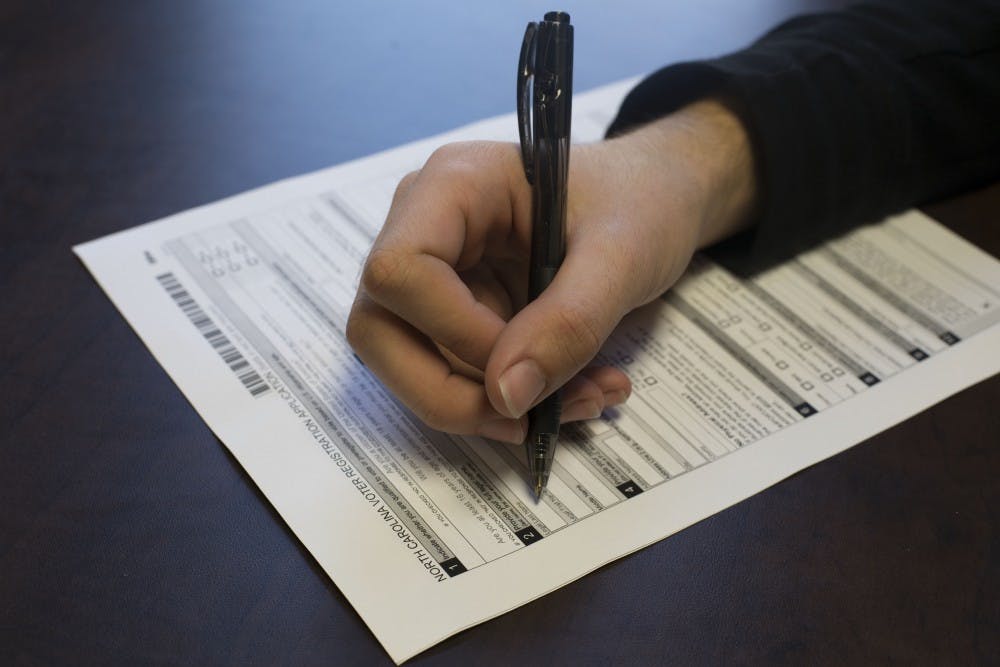In last year’s midterm elections, 55.49 percent of North Carolinians voted to approve a constitutional amendment to require photo ID to vote. However, lawmakers did not finish the actual legislation of the amendment until Dec. 6, amid protests and an eventual lawsuit from the North Carolina NAACP.
The new legislation then went to Gov. Roy Cooper on Dec. 14. He vetoed the bill, saying in a statement that requiring photo ID does not solve the problem of illegal absentee ballots and instead puts up barriers to honest voters.
"Finally, the fundamental flaw in the bill is its sinister and cynical origins: It was designed to suppress the rights of minority, poor and elderly voters,” Cooper said in the statement. “The cost of disenfranchising those voters or any citizens is too high, and the risk of taking away the fundamental right to vote is too great, for this law to take effect."
The General Assembly overrode Cooper’s veto due to its supermajority in both houses that existed until the new year. On Dec. 19, the bill became law, but the North Carolina NAACP filed a federal lawsuit against it the next day to attempt to keep it from taking effect.
Supporters of the amendment say that requiring a photo ID to vote would prevent election fraud. Tomas Lopez, executive director of Democracy NC, said that while election security is important, a photo ID requirement would prevent voter impersonation, which is very rare, but does not prevent absentee ballot fraud.
“What we’ve seen both in North Carolina and in other states around the country that have enacted voter ID requirements is that there is an effect on certain kinds of people,” Lopez said. “It tends to be people of color or older people or students. This changes the composition of who votes, and that’s a piece of the motivation.”
The N.C. State Board of Elections recently released its extensive post-election audit report for the 2016 general election, which found that, out of nearly 4.8 million votes cast, there were 441 cases of voting by suspected active felons, 41 non-citizens with legal status, such as a green card who cast ballots, 24 cases of double voting, two cases of voter impersonation and no evidence of ballot stuffing, equipment tampering or administrative fraud.
“NCSBE understands that whether an irregularity is administrative, unintentional or intentional, the end result is an ineligible vote that dilutes votes lawfully cast by eligible voters,” the report said. “Even assuming all ineligible ballots identified in this report were cast for the prevailing candidate, no races — statewide or local — would have had a different outcome than the one already certified by the state.”
Rachel Raper, director of the Orange County Board of Elections, said she is not sure yet how the new legislation will be enacted at the local level because the current version of the bill does not include the technical details that would be necessary for implementing those changes.




